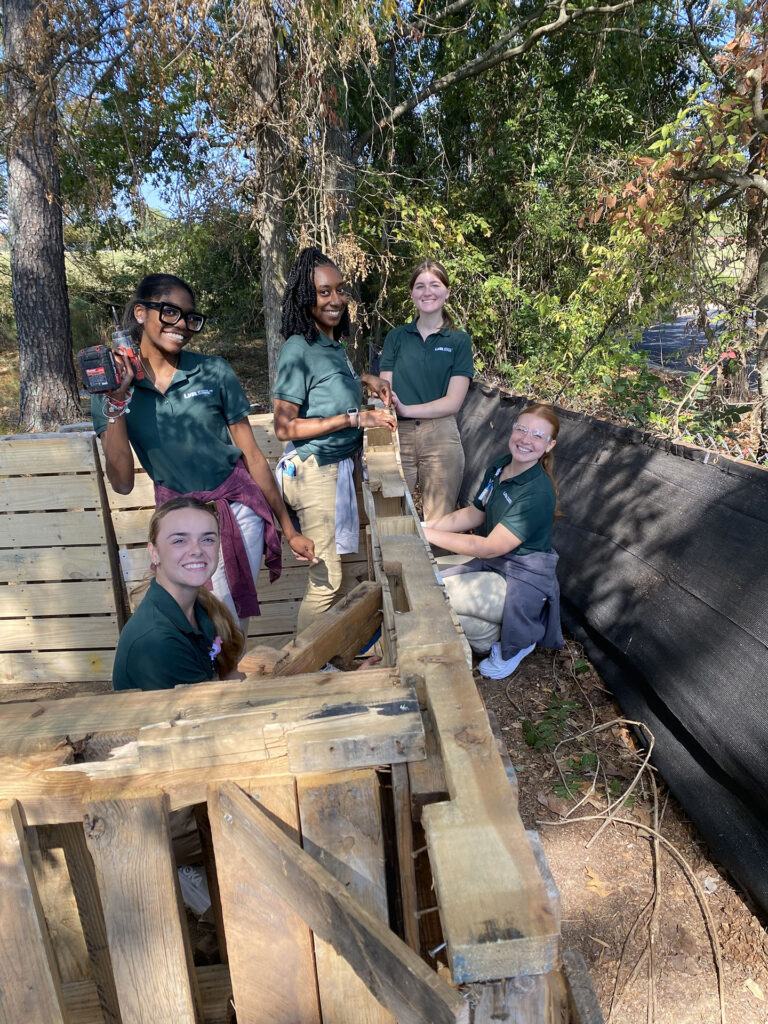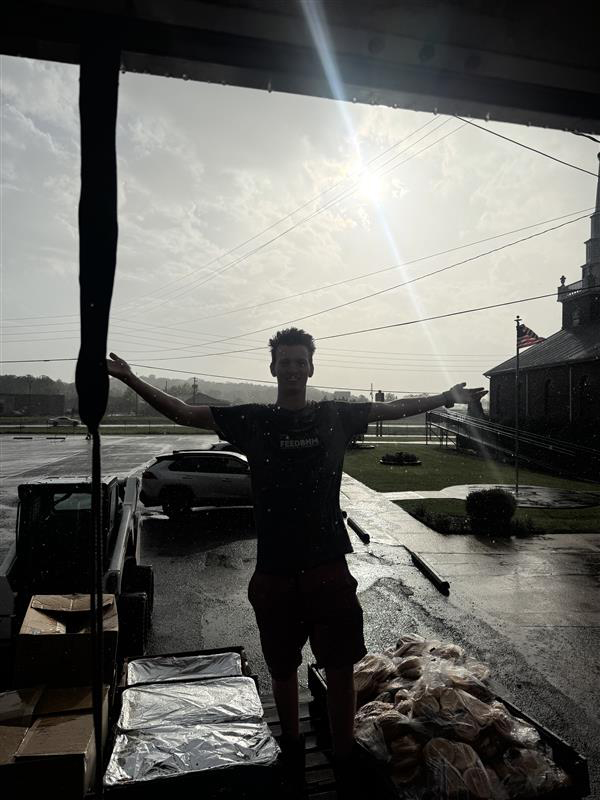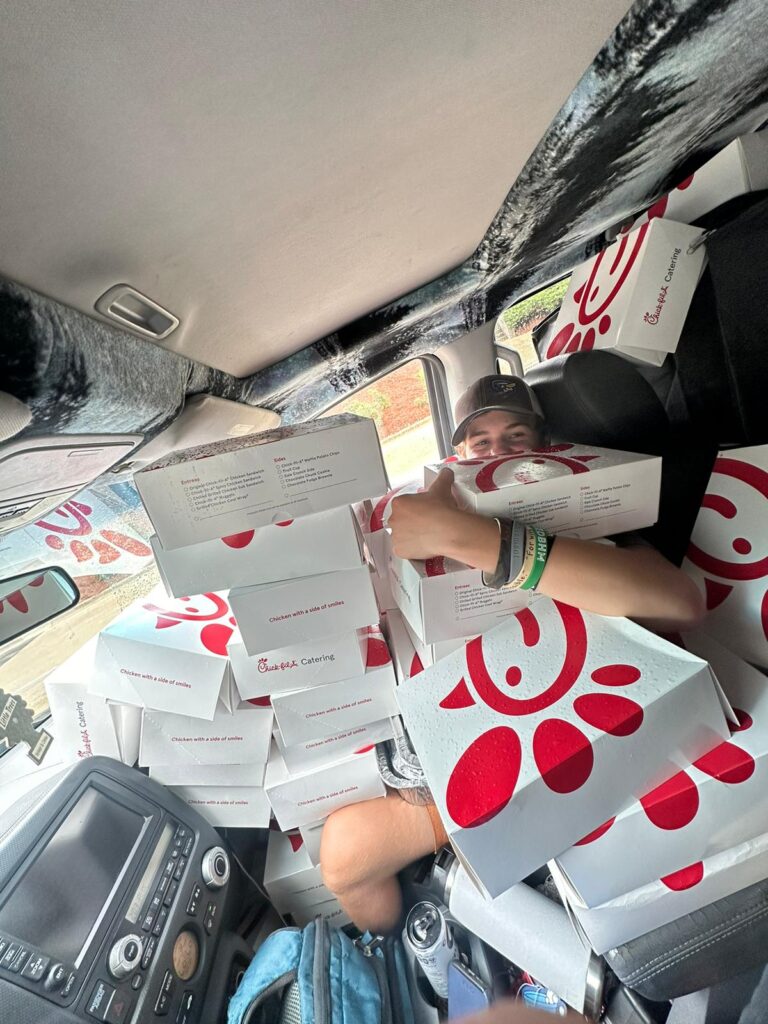In Genesis 1 and 2, God created the heavens and the Earth, calling His creation good. He designed a world of immense beauty and detail from the smallest cell to… Read
Read MoreGOD’S HEART FOR SUSTAINABILITY.
On July 24th, 2024, Grace Klein Community posted pictures of empty refrigerators and bread shelves on social media with the caption, “!!We are out of food!!!”
For an entire day, we found ourselves without food, a faith building situation for our team, who serve thousands of people every day. In a moment of scarcity, our staff gathered to pray for food—not for ourselves, but for the families depending on us.
As the day went on, small food rescues trickled in, and a medium-sized catering pickup arrived. Yet, as quickly as the food came in, our team faithfully pushed it right back out. We trusted God to provide in abundance and refused to cling to the little we had.
How did God respond to our prayers and unwavering faith? With a 20,000-pound after-hours food rescue! Twenty staff members, interns, and volunteers stayed up past midnight to move the food from the food donor to our hubs in Hoover and Bessemer. Our fridges and freezers could barely contain the abundance, and the following day, we worked tirelessly to get the food into the hands of those who needed it.
The Lord provides, sustains, and cares for His people, His work, and His resources. We need to pray, trust, and steward well.
The Miracle of the Loaves and Fish
John 6:15 recounts Jesus feeding 5,000 people with five loaves of bread and two fish. Three years into His ministry, on the far shore of the Sea of Galilee, Jesus… Read
Read MoreSustaining God’s Blessings
God sustains His resources and His people. God provides and calls us to care for what He has given. Psalm 24:1 states, “The earth is the Lord’s, and everything in it,… Read
Read More

